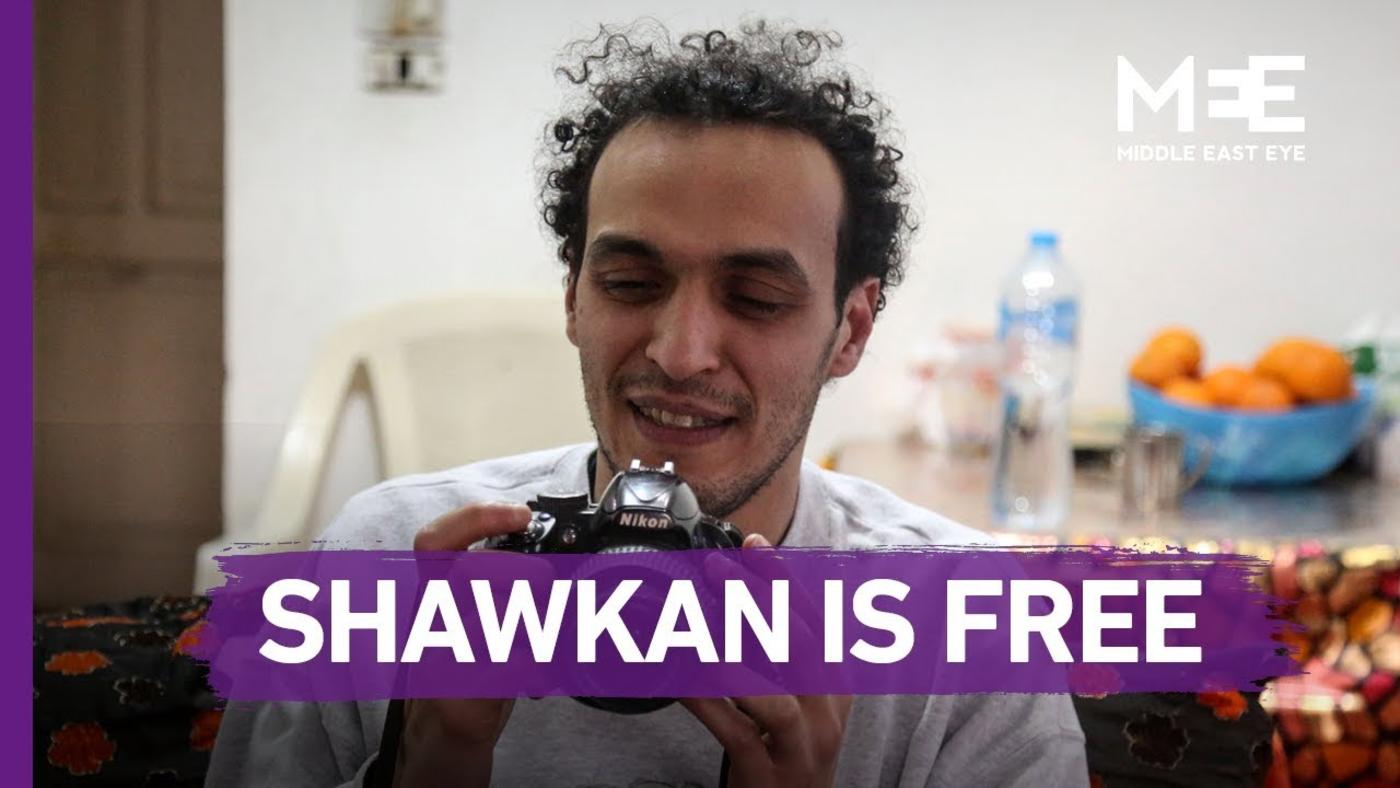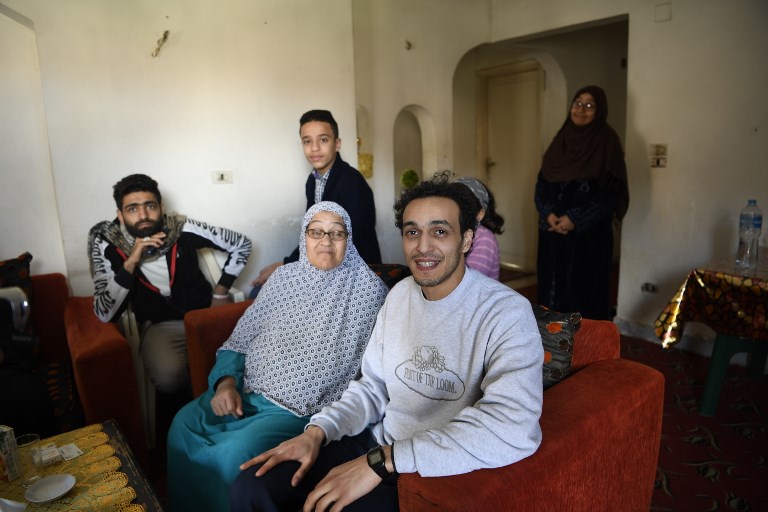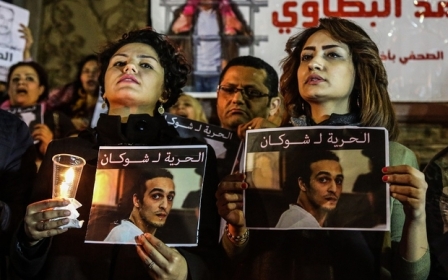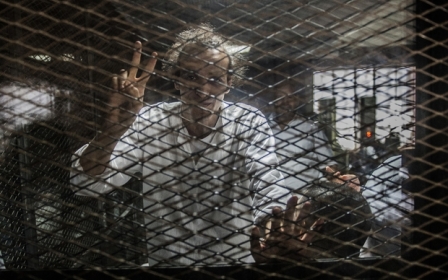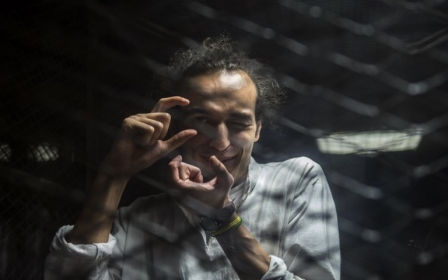Egyptian photojournalist Shawkan free after nearly six years in jail
Award-winning Egyptian photojournalist Mahmoud Abou Zeid, better known as Shawkan, was released from detention on Monday morning after nearly six years in jail, according to local media and activists.
“It’s a feeling I cannot explain, I am free,” he told Reuters news agency.
Shawkan was transferred from prison to pre-release detention on 16 February after serving five years and six months in jail.
Another 214 people who were jailed at the same time and served the same sentence as Shawkan were also released on Monday, according to the AFP news agency.
New MEE newsletter: Jerusalem Dispatch
Sign up to get the latest insights and analysis on Israel-Palestine, alongside Turkey Unpacked and other MEE newsletters
Shawkan’s release is conditional as he will be subject to five years of “police observation” whereby he must appear at a local police station every day at sunset, in addition to restrictions on his management of financial assets.
The Committee to Protect Journalists welcomed Shawkan’s release but called on Egyptian authorities to remove further conditions on his release.
"We are relieved to hear that Shawkan is finally free after spending over five years in jail and call on authorities to end their shameful treatment of this photojournalist by removing any conditions to his release," said CPJ Middle East and North Africa programme coordinator, Sherif Mansour.
"The Egyptian government should take steps immediately to improve its image, which has been badly tarnished by this unjust imprisonment - and it can start by releasing all journalists jailed in relation to their work."
Last year, Shawkan received the 2018 Press Freedom Prize awarded by the United Nations cultural agency UNESCO, which called his detention a human rights abuse.
Egypt's government, in turn, criticised UNESCO for its decision to honour someone accused of "terrorist and criminal acts".
International rights groups have repeatedly denounced Shawkan's arrest and called for his release, including Amnesty International, which said he was imprisoned merely for doing his job as a photojournalist at a public demonstration.
Shawkan, 31, was arrested on 14 August 2013 while taking pictures of the Egyptian military's violent dispersal of a sit-in at Rabaa al-Adawiya square, where supporters of deposed President Mohamed Morsi were protesting the coup against him that year.
More than 800 protesters were killed by the joint police and military operation, according to Human Rights Watch.
In August 2015, he was referred to trial alongside more than 700 other defendants on charges including participating in unauthorised protests, murder and membership of the banned Muslim Brotherhood group.
Last September, the criminal court sentenced Shawkan to five years in prison, a sentence he had already served retroactively. But he was sentenced to an additional six additional months in detention as prosecutors claimed he failed to pay “compensation” for the damages alleged in the charges against him.
Seventy-five people in the same case have been sentenced to death and are currently in the process of appealing their verdict, according to local lawyers.
According to Reporters Without Borders, at least 32 Egyptian journalists are currently detained in Egypt, ranked 161st in the RSF 2018 press freedom index.
Middle East Eye delivers independent and unrivalled coverage and analysis of the Middle East, North Africa and beyond. To learn more about republishing this content and the associated fees, please fill out this form. More about MEE can be found here.


